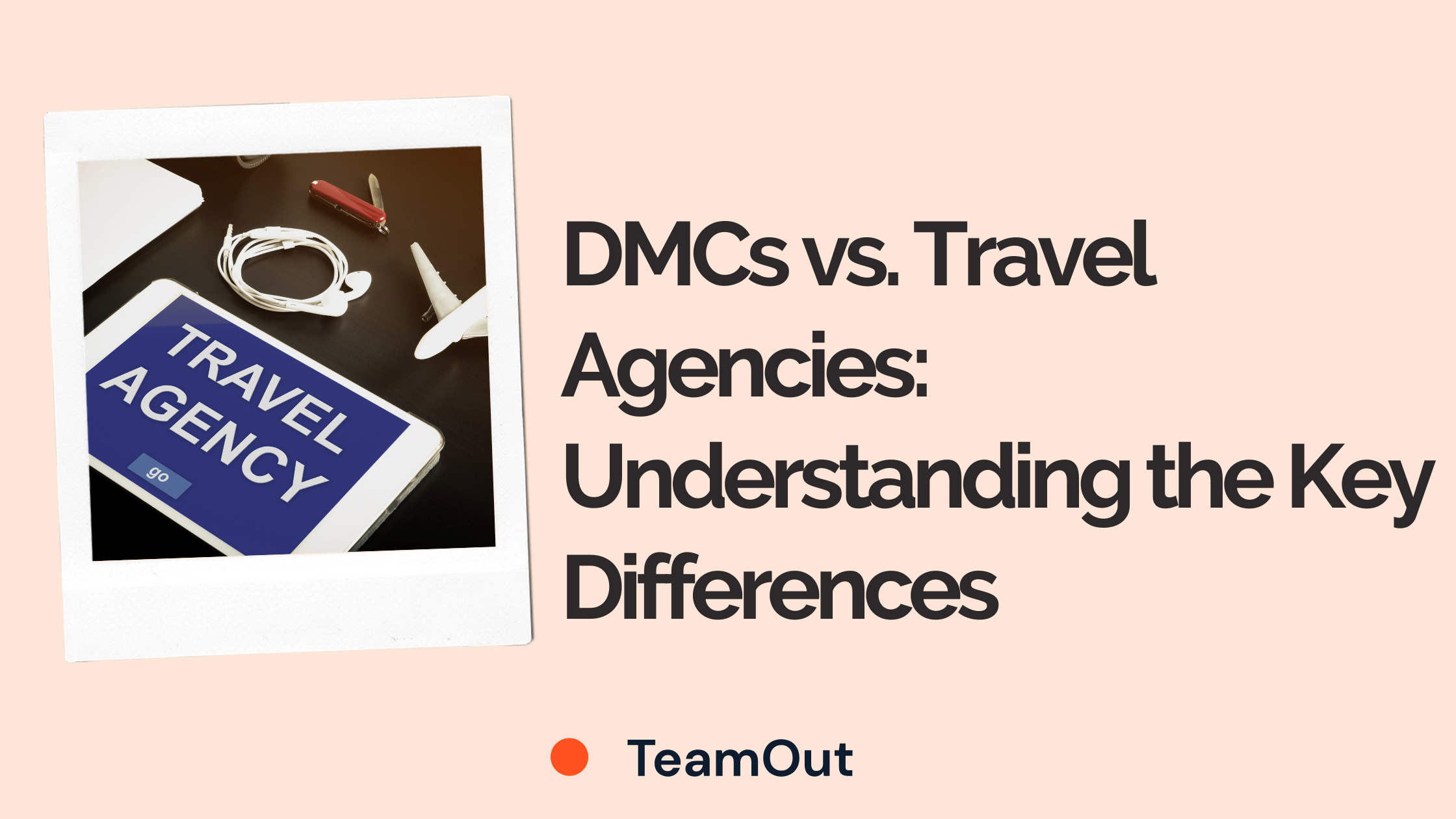30 Statistics about corporate retreats
1. Face-to-face communication packs a punch, being 34 times more effective than virtual alternatives.
This Harvard Business Review research highlights the reason why corporate retreats are crucial for fostering genuine in-person connections. From meetings to workshops and team-building activities, teams boost their communication skills and strengthen personal and professional bonds.
2. According to Indeed, a staggering 73% of remote workers are eager to engage in social interactions and group activities with their teams.
Corporate retreats provide the perfect solution for this isolation, providing a much-needed dose of shared experiences.
3. The Global Business Travel Association states that business travel significantly boosts job satisfaction globally. In North America, 79% of participants agreed with this statement, rising to 83% in Europe and up to 96% in Asia.
Millennials, in particular, value these opportunities, highlighting the importance of corporate retreats in attracting and retaining top talent.
These stats underscore the importance of corporate events, incentive travel, and retreats as a valuable strategy to keep employees motivated.
4. An article by the U.S. Chamber of Commerce states that 63% of corporate managers are eager to keep engaging in regular offsite meetings and retreats.
This statistic reflects the enthusiasm and the recognized value of in-person gatherings for team building and strategic planning. Regardless of the ever-changing office settings (hybrid/remote(in-person), there is a continuous interest in participating in team offsites.
5. For 67.7% of companies that conduct offsites, team building remains the primary goal, according to the State of the Company Offsite & Retreat Report.
Even though corporate retreats provide excellent opportunities for learning and networking with speakers and industry experts, research shows that the main goal is team building. This evidences a focus on strengthening interpersonal bonds and collaboration skills, demonstrating the essential role retreats play in creating high-performing teams.
6. According to a Forbes article, nine out of 10 employees struggle with team dynamics, as stated by the TeamDynamics 2024 State of the Team report.
Corporate retreats provide a unique opportunity to address these challenges head-on, fostering better understanding and cooperation among team members. An example of that are problem-solving activities implemented during retreats. These promote collaboration and teamwork, enhancing a healthy company culture.
7. With 32.6 million Americans projected to work remotely by the end of 2025, Forbes calls out the need for in-person connection, which is more critical than ever.
Corporate retreats offer a vital solution to bridge the gap created by remote work, preserving company culture without resorting to rigid return-to-office mandates.
8. According to Entrepreneur, 72% of global workers report feeling lonely at least monthly and 55% weekly.
Loneliness is a silent productivity killer. A team where individuals feel alone or left out is not a cohesive, united team. Corporate retreats combat this isolation, providing a crucial lifeline for remote teams to forge meaningful connections and reinvigorate their sense of belonging.
9. Remote work isolation can lead to a 21% drop in productivity, according to Gallup.
This statistic shows the importance of creating inclusive, connected team environments. Corporate retreats provide an effective opportunity to combat isolation, reinvigorate team spirit, and maintain high-performance levels among remote workers.
10. The State of the Company Offsite & Retreat indicates that corporate retreats boast impressive attendance rates, with 69.5% of companies reporting 76-100% participation.
This high turnout speaks volumes about employees' desire for face-to-face interactions and the perceived value of these events.
11. State of Collaboration Survey reports that 41% of employees have either quit or considered quitting due to poor workplace collaboration.
Moreover, nearly two-thirds (64%) report losing at least three hours of productivity weekly because of collaboration issues.
These figures highlight the urgent need for effective team-building strategies, with corporate retreats providing the answer to these problems by enhancing collaboration and boosting productivity.
12. According to Gallup, leaders identify communication (48%) and collaboration (44%) as their teams' top two challenges.
Corporate retreats offer employees a platform to address these issues face-to-face, allowing teams to develop communication channels and collaborative strategies in a focused, distraction-free environment. By investing in retreats, companies can equip their teams with the tools/connections needed in the workplace.
13. The Employee Wellness Industry Trends Report affirms that 76% of companies are ramping up their investment in stress management and resilience resources for employees.
There’s a growing recognition of workplace stress and its impact on productivity. Corporate retreats are a way to introduce and reinforce these vital skills, providing employees with tools they can apply both at work and in their personal lives. By incorporating stress management techniques into team activities, or by planning wellness retreats, companies can create a more resilient and balanced workforce.
14. A Deloitte study found that 80% of organizations say worker well-being is crucial for their success over the next 12-18 months.
The importance of employee well-being cannot be overstated. This statistic from Deloitte highlights the pivotal role that wellness-focused team building plays in modern business strategies. Corporate retreats centered on well-being address stress relief and contribute to long-term success by fostering a healthier workforce.
15. Over half (52%) of employees have left a job or strongly considered leaving a job because they did not have a strong sense of belonging to a community.
Corporate retreats can play a vital role in building this sense of belonging and improving employee retention. Groups participate in shared experiences, fostering genuine connections. Retreats provide a platform for employees to interact beyond their day-to-day work responsibilities, ultimately transforming workplace relationships.
16. In an article published by Forbes, a study done by Flexjobs indicated that 62% of employees leave due to a toxic company culture, and 49% of employees leave due to a lack of healthy work-life boundaries.
Toxic company culture and poor work-life balance are driving employees away. These alarming stats bring attention to the urgent need for businesses to address workplace culture and employee well-being. Corporate retreats are an opportunity to reset, build stronger bonds in person, and show a commitment to work-life balance.
17. Another Forbes article reports that according to The Harvard Business Review, for every $1 invested in people, $6 was saved in company health care costs.
Investing in your employees pays off. This ROI makes a compelling case for corporate retreats focused on employee well-being. By viewing these retreats as investments rather than expenses, companies can improve employee health, reduce healthcare costs, and boost productivity.
18. A study by Gartner affirms that human-to-human connections boost collaboration by 23% while adding that they are harder to come by now due to hybrid and remote work settings.
Historically, employee connections were the result of working in the same location every day. However, these vital interactions have become scarce in today's work environment. Corporate retreats are the solution to this challenge, providing a space for teams to boost these connections and revitalize collaboration.
This trend is proof that companies recognize retreats' value in improving team cohesion and productivity. By investing in regular offsites, these organizations are creating continuous opportunities for face-to-face interactions, which are important for maintaining strong human connections in a hybrid/remote work setting.
20. According to the Journal of Applied Psychology, breaks from routine and exposure to new environments can boost creativity and problem-solving skills.
Corporate retreats are an escape from the office routine, promote a mental reset, and provide a change of scenery that sparks innovation and fresh thinking. By immersing teams in new environments, companies can explore their employees' creative potential, leading to new ideas and solutions.
21. Gusto - Community at Work report states that one way to boost office camaraderie is to celebrate milestones together, which two-thirds of small businesses do. This leads 80% of employees at small businesses to feel personally connected to their coworkers.
Even though corporate retreats are not directly connected to celebrating milestones as a team, incentive travel is precisely that. The benefits are undeniable for team connection.
22. A Harvard Business Review survey concluded that 81% of respondents believe that traveling to meet in person offers value beyond the meeting.
93% of respondents said that in-person meetings are also critical to bridging cultural differences.
Corporate retreats emerge as a tool for fostering cross-cultural understanding and collaboration. By bringing diverse teams together in one experience, these retreats can break down cultural barriers, build trust, and create a more cohesive global workforce.
23. An article published by Indeed indicates that 67% of employees think burnout has increased since the pandemic and the rise in remote working.
Team offsites are the right occasion to combine work with team-building activities, relaxation, and wellness experiences. Though this isn’t the cure for burnout, when companies balance work with relaxation, they promote a balance between their employees’ personal and professional lives, contributing to healthier individuals.
24. A Skift survey addressed by the U.S. Chamber of Commerce stated that of over 1,000 corporate travelers, two-thirds of respondents said it is difficult to build professional connections in a virtual environment.
Corporate retreats are unmatchable when it comes to strengthening bonds and promoting networking between teams.
25. According to Gartner, when employers offer a flexible work experience, the likelihood of employees staying with the organization, experiencing less fatigue, and achieving high performance is 1.5 to 1.7 times superior to when these attributes aren’t met.
By planning team offsites, employers are promoting a flexible and innovative approach to work. This change in employee’s routines and immersion in a new setting will lead to higher performance from the team.
26. 90% of employers believe that fostering a sense of community at the workplace is important for business success.
Corporate retreats are known to promote teamwork, unity, and cohesion between team members, which inevitably leads to the rise of a sense of community. When teams work together, tackle challenges, and embrace new activities as a group, they feel closer to each other.
27. While 57% of employers said they know their employees well, less than half of employees reported they have meaningful connections with their coworkers.
There's a disconnect between employers' perceptions and employees' experiences of workplace connections, which highlights the need for more intentional team-building efforts. Corporate retreats can bridge this gap by creating opportunities for authentic interactions and relationship-building outside the work context.
28. Owl Labs’ State of Remote Work Report found that 41% of remote employees struggle to feel integrated into their company’s culture.
Even though there are many types of corporate retreats, one thing is certain: they promote your company culture through a customized agenda, team-building activities, workshops, and even wellness experiences. Planning a team offsite can go a long way in promoting integration within the team, especially for new members.
Corporate retreats are opportunities provided by companies where teams work together, participate in activities, and learn about new industry trends. Because offsites strengthen team bonds, it’s safe to say they also promote a sense of belonging that lasts when teams are back at the office.
30. Allied Market Research states that the global wellness retreat market size is projected to reach $363.9 billion by 2032, growing at a CAGR of 7.4% from 2023 to 2032.
As companies face challenges like burnout, stress, and disengagement, corporate wellness retreats offer a possible solution. The substantial market growth indicates that more organizations are realizing the long-term benefits of these retreats, including increased productivity, enhanced creativity, and improved employee retention.
Wrapping Up
These 30 statistics from different authoritative sources show how corporate retreats are a necessity in 2025. They play a crucial role in fostering team cohesion, boosting productivity, and addressing the challenges of remote and hybrid work environments.
The data also shows that investing in these gatherings yields significant returns, from ROI to employee satisfaction.To plan successful corporate retreats, companies need a partner that understands modern team building.
TeamOut offers innovative solutions to create impactful retreat experiences, with access to 4,000 venues worldwide and expert planners who can design engaging team-building events.
TeamOut's platform simplifies retreat planning, helping you find the perfect location while saving up to 30% on venue costs.
Our experts organize everything from venue selection to activity coordination in a seamless process.
Transform your team's potential by booking a free call with TeamOut's planners and discover how to inspire your workforce in 2025.

















.webp)


